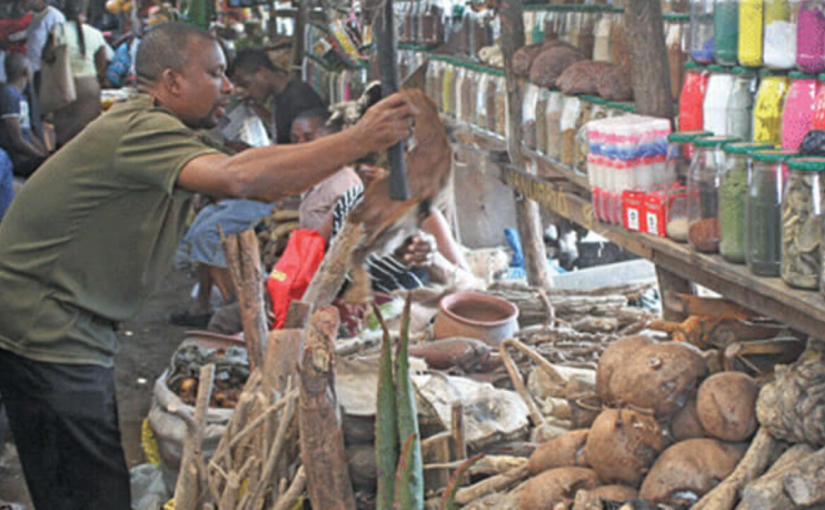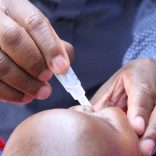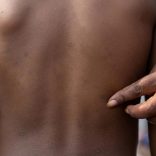Mozambique will, this year, rebuild 104 health units affected by cyclones - government
Mozambican healers know they can do nothing against the coronavirus

Photo: MMO
A hut overflowing with tubers and roots with supposed medicinal properties in Xipamanine market in central Maput, reassures customers that everything can be cured there, but the proprietor says he “cannot do anything for flu and cough”, because “it could be coronavirus”.
Saimon Macuácuá tells Lusa that the traditional medicines at his stall are for diabetes, gonorrhoea, syphilis, mycosis and kidney problems.
“The Ministry [of Health] and the Association [of Traditional Medicine Sellers – Avematro] have already warned us that patients who come to us with symptoms such as fever, cough or difficulty breathing,” should be referred to the state hospital, he says.
Macuácuá has powders made from roots and tubers in transparent jars, which he says “may bring good luck in life” when drunk with a glass with water, but he does not venture into other types of cures.
João, who also sells roots and tubers at Xipamanine, says his clients know that, when they have the flu, fever and a cough, they should go to hospital.
“Our customers know that not even we, who have been selling medicines for years, have a solution [for the coronavirus]. So they only come here when they have problems [that we know about],” he says.
The president of the Association of Traditional Medicine Sellers of Mozambique (Avematro), Filimão Langa, told Lusa that operators in the sector have been told to sell only products whose effectiveness has been known in Mozambican communities for many years.
The use of traditional products is common, but more serious is the proliferation of counterfeit and illegal medicines in informal street markets.
“We are collaborating with the Ministry of Health, and we know that diseases like this new one [Covid-19] cannot be treated by someone from Avematro,” he said.
“The informal and illegal drug market is a challenge in most African countries,” World Health Organisation (WHO) representative in Mozambique, Djamila Cabral, warns in an interview with Lusa.
“They are generally cheaper, more accessible – they can be found anywhere – and people tend to self-medicate. It is part of the system’s weaknesses,” she stresses.
Cabral points out that there are still no vaccines or other treatment for Covid-19 infection.
The Mozambican authorities have emphasised that the symptoms, such as fever, cough or breathing difficulties, are to be treated with known products until the patient recovers.
Pharmacies contacted by Lusa in Maputo said there has been the usual demand for medicines for symptoms typical of the changing of seasons from summer to winter in Mozambique.
“They are buying normal seasonal flu medicines,” Fernando Novela, a technician at Farmácia Chamanculo, said, adding that he believes the lack of information among the Mozambican population may mean that there is not much awareness about Covid-19.
“There is misinformation, and this may be creating confusion, but nobody is coming to us because they think they may have the coronavirus,” he said.
At Farmácia Xiquelene, in another Maputo neighbourhood, with one of the largest informal markets in the capital, users look for medicines without a prescription.
“At this time of the year, there are always viruses that make Maputo people think it’s time to go and look for [flu] medicines,” Abílio, a staff member at the pharmacy tells us.
There are no confirmed cases of Covid-19 in Mozambique as yet, but anxiety has increased since the confirmation last week of new cases in neighbouring South Africa.
The new coronavirus responsible for Covid-19 was detected in December in China and has already caused about 5,000 deaths worldwide, leading the World Health Organisation to declare the disease as a pandemic.
The number of confirmed cases of infection with the Covid-19 coronavirus in Portugal rose to 245 yesterday, 76 more than on Saturday, and suspected cases now number 2,271.
By Paulo Machicane












Leave a Reply
Be the First to Comment!
You must be logged in to post a comment.
You must be logged in to post a comment.